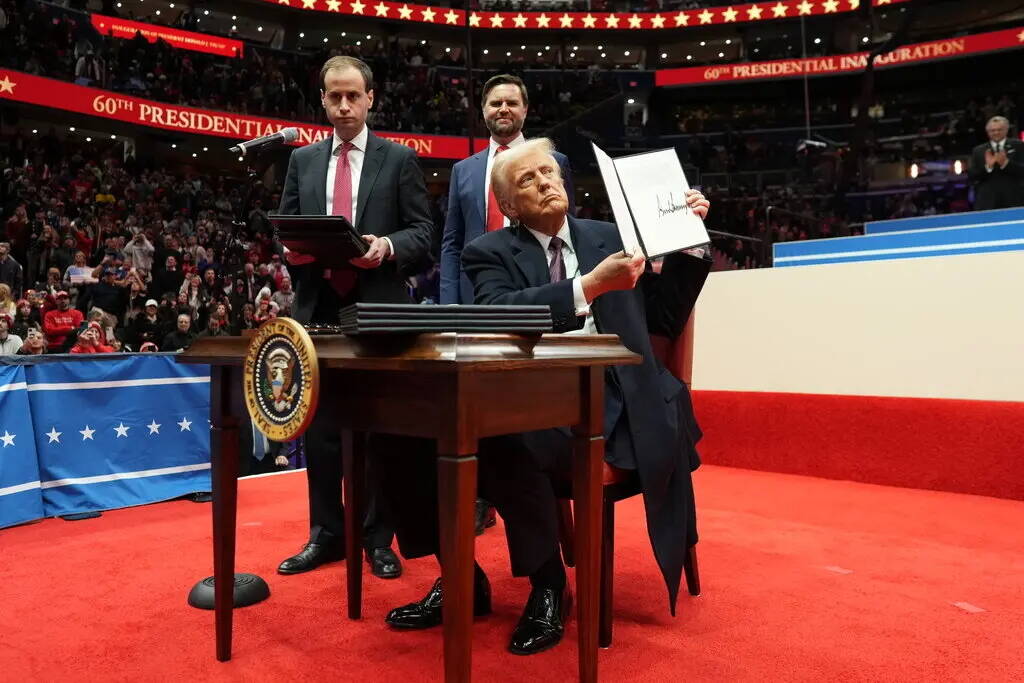This is a developing story.
Questions about whether Native Americans born in the United States have birthright citizenship if they aren’t “subject to the jurisdiction” of the U.S. — such as if they live on sovereign tribal land — were raised in a U.S. Justice Department filing this week defending President Donald Trump’s executive order suspending such citizenship.
However, the arguments are based on 19th-century legal provisions that precede the Indian Citizenship Act of 1924 passed by Congress, which established citizenship for Native Americans who were previously excluded by the Constitution.
It also appears the argument would have little current impact on Alaska Natives since the only reservation is in Metlakatla. However, tribal officials in Juneau and elsewhere are seeking to establish “Indian Country” rights over parcels of land, which took a notable step forward when a federal judge ruled last year the Department of the Interior can take land into trust on behalf of Alaska tribes.
The Trump administration’s actions were enough for Richard Chalyee Éesh Peterson, president of the Central Council Tlingit and Haida Indian Tribes of Alaska, to share in a Facebook post an article by the news site Salon that first reported the story.
“Where do we get deported to?” Peterson wrote in a subsequent comment.
The Justice Department’s filing is in response to one of several lawsuits by at least 22 states to Trump’s order, with a federal judge on Thursday issuing a two-week restraining order. While the intent of the executive order is to target U.S.-born children of foreign parents, the Justice Department references Native Americans in the attempt to legally justify the president’s decree.
The key phrase is a clause in the 14th Amendment to the U.S. Constitution that states: “All persons born or naturalized in the United States, and subject to the jurisdiction thereof, are citizens of the United States and of the State wherein they reside.”
“Under the plain terms of the Clause, birth in the United States does not by itself entitle a person to citizenship,” the Justice Department filing argues. “The person must also be ‘subject to the jurisdiction’ of the United States.”
In addition, according to the filing, the Civil Rights Act of 1866 states “all persons born in the United States and not subject to any foreign power, excluding Indians not taxed, are hereby declared to be citizens of the United States.”
The filing also references the 1884 U.S. Supreme Court case Elk v. Wilkins, where the court ruled 7-2 “because members of Indian tribes owe ‘immediate allegiance’ to their tribes, they are not ‘subject to the jurisdiction’ of the United States and are not constitutionally entitled to Citizenship.”
“The United States’ connection with the children of illegal aliens and temporary visitors is weaker than its connection with members of Indian tribes. If the latter link is insufficient for birthright citizenship, the former certainly is,” the Justice Department filing argues.
The Indian Citizenship Act of 1924 would appear to supersede those arguments.
• Contact Mark Sabbatini at mark.sabbatini@juneauempire.com or (907) 957-2306.

